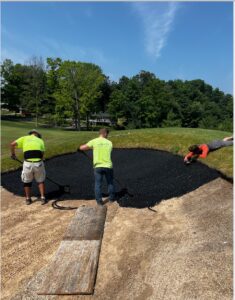Recycled Rubber Products Gaining Ground in the Golf Industry
Michigan scrap tire market development grant spurs promising growth for recycled tire rubber in the golf market
The golf industry was very soft prior to Covid but experienced strong market growth during and since Covid as other markets were stalling out. This uptick in golf was the catalyst for bringing industry and government together to expand the use of scrap tire-derived rubber in the golf industry in Michigan.
The Michigan Department of Environment, Great Lakes and Energy’s (EGLE) mission to promote viable scrap tire markets in the state coincided with Michigan-based Porous Pave’s efforts to bring the benefits of recycled rubber to Michigan’s golf industry, resulting in a market development grant designed to meet both objectives.
Specifically, the grant focused on increasing the market for Porous Pave XL rubberized permeable pavement for cart paths and Porous Pave XLB – Sand Guard Bunker Lining System for bunkers.
Porous Pave is an eco-efficient, surfacing material made from recycled tires, stone aggregate, and a proprietary binding agent. Porous Pave XL and XLB Sand Guard is a 50/50 blend of rubber and stone that imparts flexibility from the rubber and durability from the stone chips and hard binder. It is incredibly permeable and staged/mixed on-site and applied as a single, monolithic pour minimizing disruption in play.
Porous Pave XL excels for cart paths and cart maintenance areas – players love the high traction and natural ball bounce. The ability to mix SandGuard at the bunker without the need for cement trucks is a game changer.
“There is tremendous growth potential in both these areas, and we especially wanted to have a strong presence in the state of Michigan,” Matt Lamb, Porous Pave VP of Sales and Marketing, said.
 Awarded in 2021, the grant initially aimed at securing projects with six courses in the state and leveraging the success of those installations on a national basis. However, EGLE expanded the length of the grant, allowing Porous Pave to connect with eight different courses.
Awarded in 2021, the grant initially aimed at securing projects with six courses in the state and leveraging the success of those installations on a national basis. However, EGLE expanded the length of the grant, allowing Porous Pave to connect with eight different courses.
“Porous Pave is a creative material that continues to be used in imaginative and resourceful ways, Kirsten Clemens, EGLE Scrap Tire Coordinator said. “Our market development program is designed to support and give exposure to systems like Porous Pave that produce completely usable products, ready to go to market,” she said.
Although Porous Pave had installed cart paths with Porous Pave XL rubberized permeable pavement and bunker liners with Porous Pave XLB in other states, being close to the projects in Michigan had several benefits.
“We were able to have a hands-on role in each project, giving us more insight into both installer and customer needs and the opportunity for yearly follow-up at each course,” Lamb said.
Being in-state was particularly valuable in creating exposure for the company’s bunker liner product, Porous Pave XLB, which was still relatively new to the market and did not have a large base of installations. Over the course of the grant cycle, Porous Pave’s XLB became Porous Pave’s fastest growing application, with solid growth for Porous Pave XL rubberized permeable pavement in cart path applications, Lamb said.
To facilitate the use of recycled rubber and encourage new markets in the state, the grant provided funding for an internal rock aggregate line designed to wash, dry and bag rock aggregate used in the production of Porous Pave products.
The new rock line is housed in a recently acquired warehouse facility in Grant, Michigan giving Porous Pave access to both in-state and regional markets. With the tremendous post-Covid price spike in shipping costs and significant supply chain issues, bringing aggregate production in-house has lowered Porous Pave’s shipping and transportation cost and reduced its environmental footprint, the company said.
Through this grant cycle Porous Pave invested $121,330 in the rock processing line with more than $384,000 invested in the selected Michigan golf courses. The grant also provided funding for test areas at several of the courses that could result in larger projects in the future and significantly increase scrap tire recycling in the state.
Over 31,000 square feet of Porous Pave was installed for these projects. At two inches thick, each 1,000 square feet of Porous Pave uses the equivalent of 4,000 lbs. of tires. Based on the various depths of these installations, we estimate that over 124,000 lbs. of tires were kept from the landfills which equates to about 4,680 passenger car tires.
Some of the grant funds were also invested in creating promotional content that has been invaluable in promoting Porous Pave in the golf industry. One example is Porous Pave’s increased exposure in the Michigan Golf Course Superintendent Association which presented many educational and informational opportunities.
The company has been highlighting these projects in numerous ways including social media. Porous Pave recently featured the Waters Edge cart path project on Facebook. This project is particularly interesting in that part of the installation is over new base rock and part of it is over existing concrete. This is becoming a trend with cart paths and this installation will help create market awareness and drive that trend.
In another media promotion, Porous Pave posted a video which featured Michigan’s Blythefield Country Club superintendent talking about the use of Porous Pave XL on a wooden bridge and stairs at the course.
“This is a unique application for Porous Pave XL rubberized permeable pavement and opens new inroads for recycled rubber surfacing in a golf course setting,” Lamb said.
Golf course builders, architects and superintendents are becoming educated that Porous Pave offers many unique advantages in golf which was confirmed by cart path installations at several premier, national courses during the period of the grant cycle.
Lamb credits the market development grant for providing the resources and support that helped bring awareness to Michigan’s golf market about recycled rubber products like Porous Pave.
“The grant has been incredibly effective driving new opportunities and market growth both in Michigan and nationally,” Lamb said.
For EGLE’s Kirsten Clemons, “teaching people how a recycled rubber material performs, how it’s installed, what works and what doesn’t and opening that technology up to others “are goals EGLE seeks to achieve in its market development grants.
And this grant checked all the boxes, she said.
© Scrap Tire News, September 2023






